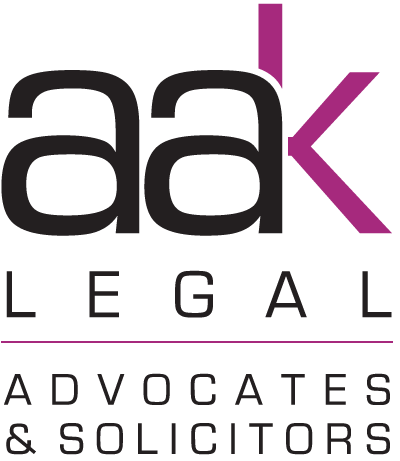Background:
Recovery proceedings were initiated before commencement of CIRP but the attachment was made during CIRP period. The claim was filed by the department beyond time and was not admitted by the RP and the same was challenged before NCLT. The claim was rejected by NCLT & NCLAT as was filed at a belated stage. The impugned order of NCLAT was challenged before the Hon’ble Supreme Court.
Issues:
The short question before the Hon’ble Supreme Court in the matter of State Tax Officer (1) V/s. Rainbow Papers Ltd.
1 was whether Sales Tax Officer is a Secured Creditor due to Sec 48 of the GVAT Act and whether Sec 53 of the I & B Code, 2016 will override Sec 48 of the Act?
Analysis:
Proceedings cannot be continued against the Corporate Debtor, after the commencement of CIRP due to moratorium u/s.14 of the Code. The RP, it seems, did not ask the department to submit their claim with him. The department filed their claim at a belated stage which was not entertained. As recovery proceedings were initiated by the department prior to commencement of CIRP, the RP should have included the details in the information memorandum (“IM”) as per regulation 36 (2) (h) of the IBBI
1 Civil Appeal No.1661 of 2020
(Insolvency Resolution Process for Corporate Persons) Regulations, 2016. The Hon’ble Supreme Court in the matter of CoC of Essar Steel India Ltd. V/s. Satish Kumar & Ors.2 has discouraged entertainment of claims filed at a belated stage as it would amount to hydra head popping up which would throw into uncertainty for the prospective resolution applicant (“PRA”). However, if the detail of the proceeding of the department would have been reflected in the IM prepared by the RP as required under regulation 36 (2) (h), then the PRA would have been mindful of the claim of the department while submitting his resolution plan.
When a claim is received by IRP/RP, the same has to be verified against various applicable statutes like Stamp Act, Limitation Act among other applicable Acts. As long as a statute can be read harmoniously with the Code, the provisions of the statute will be applicable and cannot be brushed aside based on non-obstante clause u/s.238 of the Code. Only in an event where a statute cannot be read harmoniously with the provisions of the Code, the Code will prevail due to non-obstante clause. Not all statute creates first charge on property of the CD. In fact, Sec 142A of the Customs Act creates first charge subject to the provisions of the Code. The Hon’ble Supreme Court has in the matter of Sundaresh Bhatt Liquidator of ABG Shipyard V/s. Central Board of Indirect Taxes and Customs3 held that IBC would prevail over Customs Act in view of Section 142A of the Customs Act. Similarly, Section 11E of the Central Excise Act & Section 82 of the CGST Act are subject to the provisions of the Code.
Impact:
There is a lot of confusion on what will be the impact of the Supreme Court judgment in the Rainbow matter. Whether the claim of statutory authorities having first charge be considered as a Financial Secured Creditors? What
2 Civil Appeal No.8766-67 of 2019
3 Civil Appeal No.7667 of 2021
will be the impact of the Rainbow judgment on pending resolution plans and liquidation processes?
As the judgment of the Hon’ble Supreme Court is interpretation of the provisions of the Code and not a legislative amendment, the same will have retrospective effect. The ratio laid down by the Rainbow judgment will impact all the pending resolution plans and liquidation processes. However, resolution plans which cannot be challenged in appellate authority due to limitation have attained finality and cannot be reopened as mere over-ruling of the principles by a subsequent judgment will not dilute the binding effect of the decision on inter-parties.
The Sales Tax department filed a Form B (Form for Operational Creditors) in the Rainbow matter as their case was that they are secured Operational Creditor due to operation of law, which was agreed by the Court. The statutory authorities having first charge will have to be regarded as secured Operational Creditors as the underlying charge is created due to operations of the Corporate Debtor. Being secured Operational Creditors, the statutory authorities having first charge will not be a part of the CoC. As statutory authorities having first charge are Secured Creditors as per Sec 3 (30) of the Code as a security interest is created in their favour due to Sec 3 (31) of the Code. Sec 53 (b) (ii) of the Code does not differentiate between Secured Financial Creditor and Secured Operational Creditor. The statutory authorities being Secured Operational Creditor will have to relinquish their right of first charge on the property of the Corporate Debtor and remove attachments on the property, if any. As Operational Creditors in a Resolution Plan cannot be paid less than what they will be paid under liquidation, the Secured Operational Creditors will have to be paid equal to or more than the liquidation value payable to them u/s.53 of the Code. The Financial Creditors will either have to pay the Secured Operational Creditors equal to or more than the liquidation value under the resolution plan or the Secured Operational Creditors will receive the said value u/s.53 of the Code in the liquidation process. To put it simply, the Financial Creditors cannot
escape payment to the Secured Operational Creditors either under the resolution plan or the liquidation process.
This article has been written by Mr. Ashish Jha – Dispute Resolution Team, AAK Legal, Advocates & Solicitors.
Disclaimer – This article is meant for informational purposes only. The contents of this article are not to be construed as legal advice. The views expressed in the article are those of the authors and do not necessarily reflect the views of the firm. The copyright to the article rests solely with the authors and the firm.
